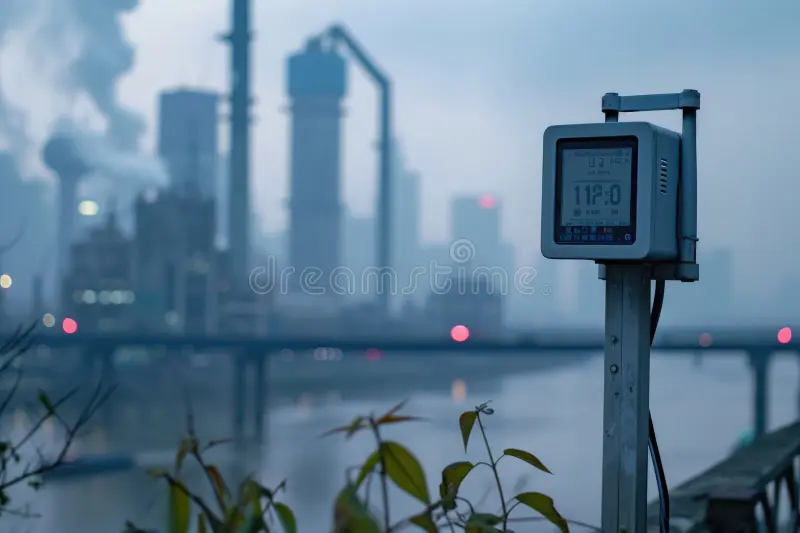MPCB Mandates Air Pollution Monitors at Construction Sites to Combat Pollution in Mumbai
The Maharashtra Pollution Control Board (MPCB) has mandated the installation of sensor-based air quality monitoring systems at all construction sites across the Mumbai Metropolitan Region (MMR). This directive aims to control pollution levels from ongoing construction and demolition activities, which have emerged as a major contributor to the city’s deteriorating air quality.
The MPCB has urged all municipal corporations in the MMR, including Mumbai, Navi Mumbai, Thane, and others, to ensure immediate compliance with the installation of these monitors at both public and private construction sites. The board has stressed that any construction site exceeding permissible pollution levels should take corrective actions immediately. Additionally, the monitoring data from these devices will be made available to the Brihanmumbai Municipal Corporation (BMC) authorities for inspection when requested. This new move is expected to strengthen the enforcement of air quality guidelines, especially as the city faces an air pollution crisis worsened by urban redevelopment and infrastructure projects.
The directive follows a February 7th letter sent by MPCB’s member secretary, Avinash Dhakne, to municipal commissioners across MMR. The letter reminds these corporations of their obligation to ensure adherence to the Environment (Protection) Act, 1986, to mitigate the impact of Construction and Demolition (C&D) activities. It was also in line with a Bombay High Court ruling in January 2025, which mandated the installation of pollution indicators at all active construction sites. The court further ordered that these monitoring devices be centrally connected, enabling real-time surveillance of pollution levels. Sites that fail to comply within one month could face penalties or even be shut down until they meet requirements. Despite the regulations, the enforcement of pollution control measures at construction sites has been a longstanding issue. The BMC had earlier issued guidelines to curb construction-related air pollution, but non-compliance and lack of rigorous monitoring have rendered these efforts less effective. As a result, the air quality in many parts of the city continues to be severely impacted, with significant health implications for residents, particularly vulnerable groups such as children and the elderly.
Dr Jalil Parkar, a senior pulmonologist, voiced his concerns about the detrimental health effects of the unchecked pollution from construction sites. He highlighted that pollutants from construction dust can cause severe respiratory issues, including fibrosis and asthma, with patients experiencing worsened symptoms. “These pollutants enter the lungs and can cause serious health complications,” Dr Parkar said. His sentiments echo the growing demand for stricter enforcement of air quality standards in Mumbai. While many environmentalists and health experts support the move, there are mixed reactions from stakeholders. Dominic Romell, the president of CREDAI MCHI, the real estate developers’ association, argued that the new rules should apply not only to construction sites but also to other industrial sectors that contribute to pollution. He pointed out that infrastructure projects like road and bridge construction often create far more pollution than construction projects but do not face similar scrutiny.
Despite the controversy, Bhushan Gagrani, Mumbai’s municipal commissioner, stated that the MPCB’s advisory on the quality of sensors was crucial before issuing formal directives to install the devices. Environmentalists, however, have expressed concerns about the effectiveness of the sensors, with some calling them “not foolproof” in tackling the pollution problem at its root. While the MPCB’s decision marks a positive step toward curbing construction-related pollution, the true test will be in the implementation and enforcement of these new guidelines. The move highlights a critical intersection of urban development, environmental protection, and public health—issues that need urgent and sustained attention to improve the quality of life in Mumbai.


